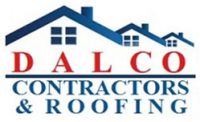Property protection is the primary function of both commercial and residential roofing systems. In terms of materials, they differ quite a bit. The most common roof types for commercial buildings are single-ply (TPO, PVC, EPDM), concrete, modified bitumen, built-up roofing, and tar and gravel. In most cases, roofs on residential buildings are made from asphalt shingles, concrete tiles, or a combination of those.
Types of Commercial Roofing
Built-Up Roofing or BUR Membrane
Tar and gravel roofs, also known as built-up roofing, are the most common roofing systems. Multi-layer pile systems are more durable due to their many layers. If you need a cost-effective and durable choice for your low-slope roof, BUR is an excellent option.
Metal Roofing
Commercial roofs commonly feature metal sheets. These tiles can come in different materials such as metal tile sheets, corrugated galvanized steel, stainless steel, coatings of stone-coated steel and silicon-coated steel, copper, and aggregates of aluminum, zinc, and tin.
Commercial roofing systems made of metal are durable and fireproof. To protect them from rusting and other environmental factors, they are coated with protective layers. In addition, they contribute to creating an environmentally friendly design for your property.
Modified Bitumen Roofing
Commercial modified bitumen roofing, also known as mod-bit roofing, comprises layers of reinforced roof fabrics and bitumen. To ensure the best protection and stability, it is attached to the roof as a two-ply system. The tensile strength of modified bitumen roofs is higher than other commercial flat roofs because they are easier to maintain. If you anticipate a lot of activity, this is the perfect commercial roof choice.
EPDM Roof Membrane
In contrast to other types of commercial roofs, thermoset roofing gives you the added benefits of versatility, long-term durability, and easy maintenance. With a single-ply rubber construction, it has a simple installation process and has a high level of resistance to ultraviolet rays.
The EPDM roof has other benefits as well, including the ability to withstand some solvents, acids, and alcohol, being flexible at lower temperatures and having reflective properties that help reduce cooling costs.
PVC & TPO Roof Membrane
Thermoplastic polyolefin (TPO) and Poly Vinyl Chloride (PVC) roofs are perfect for second-generation applications. A lightweight, UV, and puncture resistant material, they are highly reflective and resistant to most chemicals and bacteria. Those who use a ventilation system for their businesses that releases oils should choose PVC or TPO commercial roofs.
Green Roofing System
The vegetative or “green” roof, though not at the top of the list for market share, nonetheless deserves recognition. The green roof is a sustainable option for properties and has grown in popularity in recent years. These roofs can help properties conserve water and improve efficiency. Their aesthetically pleasing appearance and environmental friendliness make them well suited for commercial use.
The top of these roofs is typically covered with planting systems that are installed on trays. Rainwater runoff can be effectively controlled with vegetative roofs. To maintain the integrity of the roof and its ability to withstand water intrusion, you must have a roofing membrane on the roof.
Hire Dalco Roofing Now
By now you must have known which roofing you are going to get for yourself. However, if you are still looking for more information and need help with any of the commercial roofing systems, feel free to contact Dalco Contractors and Roofing.


